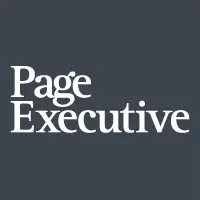Looking to hire your next leader?
Get in touch with one of our consultants now to discuss your leadership talent requirements.


Remote working, or a hybrid model of working from home and the office, is widely considered to be a ‘new normal’. Not everyone agrees, however: Goldman Sachs CEO David Solomon recently confirmed that that he will expect all of his staff to return to the office as soon as social distancing restrictions are lifted. Having previously described working from home as “an aberration”, he reaffirmed his desire that all US and UK staff return to their offices on the 14th and the 21st of June, respectively.
This is an interesting and somewhat controversial debate. It seems that many business leaders share Solomon’s outlook, at least in part. Even Google, whose staff were some of the earliest of any organisations to begin working remotely last year, has indicated that it will expect colleagues to be in the office 3 days a week. Of course, the challenges associated with remote working are far fewer for a middle-class director with a study to work in than for an office junior or graduate at the age of 22 living in a flat share, making the discussion of remote working’s relative benefits even more contentious.
Ironically, many of those most eager to retain flexible working arrangements are those arguably most disadvantaged by it: 2020 research from Deloitte has shown that twice as many millennials and Gen Z workers prefer it compared to over-55s. The major advantage of office working is, after all, the opportunity to learn through shared experiences, which is especially valuable to workers early in their careers. This does not just refer to specific events, but also to other, more intangible experiences – those career boosting moments and invaluable professional lessons that benefit those who are in the right place at the right time. It might be a chat with a superior in the kitchen while making tea or an influential conversation in the car on the way to see a client. It could be the experience of finding yourself in a meeting you were not expecting because “you’re here and it will be useful for you”, or just listening to your boss handle a challenging phone negotiation. All too often, these enormously beneficial experiences are not planned, but happen due to circumstance and the proximity of colleagues.
Whilst such experiences benefit both junior and senior employees (none of us are too old to learn new tricks), more junior members of staff are the biggest benefactors. At PageGroup, we run structured training like any business - but this only accounts for around 30% of what staff members need to know. The rest of the essential knowledge can only be acquired through shared experiences with other employees – those who have ‘been there, done that and got the T-shirt’. Indeed, we regularly identify experienced employees who would benefit from more shared experiences.
I believe that returning to office working may prove more popular than expected. For example, if in a highly competitive environment like Goldman Sachs, one colleague who is in the office more is promoted quicker or earns a bigger bonus, it will not be long before colleagues begin to emulate this example. Through a combination of peer pressure and natural human competition, presenteeism will become an increasingly important dynamic even in ‘hybrid’ workplaces. This will not be for everyone, and some will enjoy a more flexible environment; but if this negatively impacts career prospects, then human nature will kick in.
I certainly am not denying the positive potential of increased flexibility. Even in the last 10 years, there has been a huge change in attitudes to flexible working, and home working is clearly here to stay, at least in part. But nor do I believe flexible working to be the long-term, permanent solution that many commentators have concluded it will. By this time next year, I will be very interested to start assessing the longer-term effects.
At Page Executive, we help leaders make their next career step, and source top talent for companies to enable them to thrive in this fast-changing commercial landscape. If you are looking to fill a crucial executive appointment, or searching for your next leadership position, you can reach out on the details below, or arrange an introductory conversation with one of our expert consultants by clicking here.
Simon Nolan, Senior Partner, Page Executive
Email: simonnolan@pageexecutive.com
Get in touch with one of our consultants now to discuss your leadership talent requirements.

Choose your country from the list below to complete the brief form:


